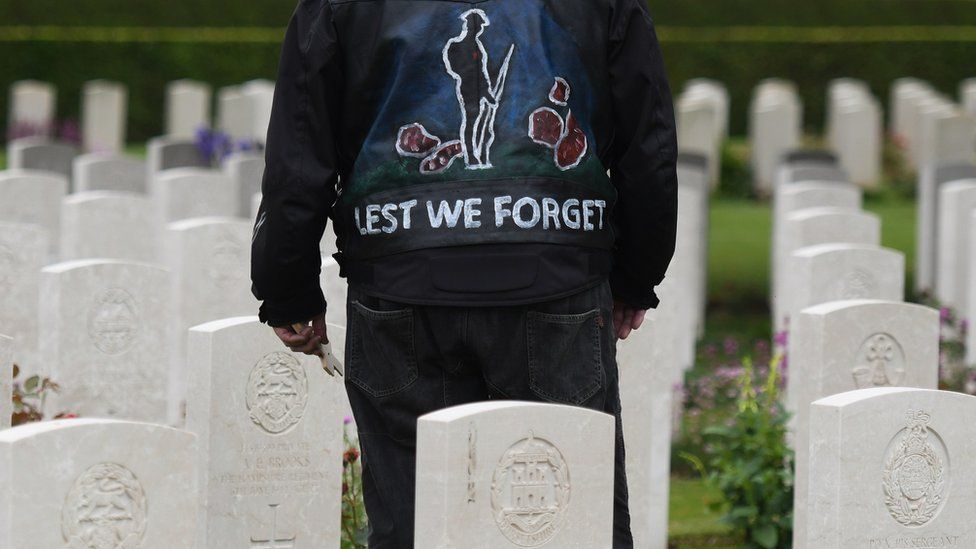
Tens of thousands of predominantly black and Asian service personnel who died fighting for the British Empire were not properly commemorated due to “pervasive racism”, a report has said.
The Commonwealth War Graves Commission apologised after it found individuals were not formally remembered in the same way as white troops.
“The events of a century ago were wrong then and are wrong now,” it said.
Defence Secretary Ben Wallace will address MPs about the findings later.
The inquiry found at least 116,000 mostly African and Middle Eastern casualties from World War One “were not commemorated by name or possibly not commemorated at all”.
But that figure could be as high as 350,000, according to the report first seen by the Guardian.
It also cited racist comments such as the governor of a British colony saying in 1923 that: “The average native… would not understand or appreciate a headstone”.
Six million soldiers from the British Empire served in World War One.
Between 45,000 and 54,000 Asian and African personnel who died in the conflict were “commemorated unequally”, the commission said.
Some of the troops were commemorated collectively on memorials, unlike their white counterparts who had a headstone bearing their name.
Other people who were missing were only recorded in registers rather than in stone.
The report concluded that the failure to properly commemorate the individuals was “influenced by a scarcity of information, errors inherited from other organisations and the opinions of colonial administrators”.
“Underpinning all these decisions, however, were the entrenched prejudices, preconceptions and pervasive racism of contemporary imperial attitudes,” it added.
Founded in 1917 as the Imperial War Graves Commission, the organisation is tasked with commemorating those who had died in the war.
The report picked out an example from 1923, when the governor of the Gold Coast colony, now Ghana, argued for collective memorials rather than individual ones.
At a meeting in London, it was said that the governor, F G Guggisberg, said: “The average native of the Gold Coast would not understand or appreciate a headstone”.
In response, commission employee Arthur Browne said: “In perhaps two or three hundred years’ time, when the native population had reached a higher stage of civilisation, they might then be glad to see that headstones had been erected on the native graves and that the native soldiers had received precisely the same treatment as their white comrades.”
The report said Browne’s response showed “what he may have considered foresight, but one that was explicitly framed by contemporary racial prejudice”.
Reacting to the findings, the commission’s director general Claire Horton said: “We recognise the wrongs of the past and are deeply sorry and will be acting immediately to correct them.”
‘Ugly part of history’
The investigation was set up by the commission in 2019, following a Channel 4 documentary, Unremembered, presented by Labour MP and shadow justice secretary David Lammy.
Mr Lammy said the report was a “watershed moment”.
“No apology can ever make up for the indignity suffered by The Unremembered,” he tweeted.
“However, this apology does offer the opportunity for us as a nation to work through this ugly part of our history – and properly pay our respects to every soldier who has sacrificed their life for us.”

- A YEAR TO CHANGE THE WORLD: ‘I don’t want you to listen to me, I want you to listen to the science’
- FOUR JOBS THAT CAN SAVE THE WORLD: Careers that are reducing our impact on the planet

